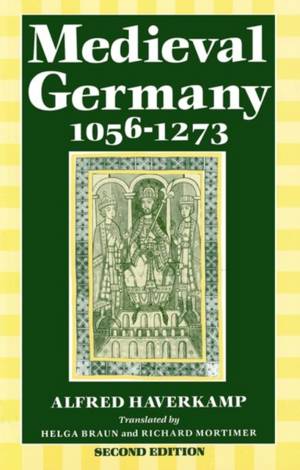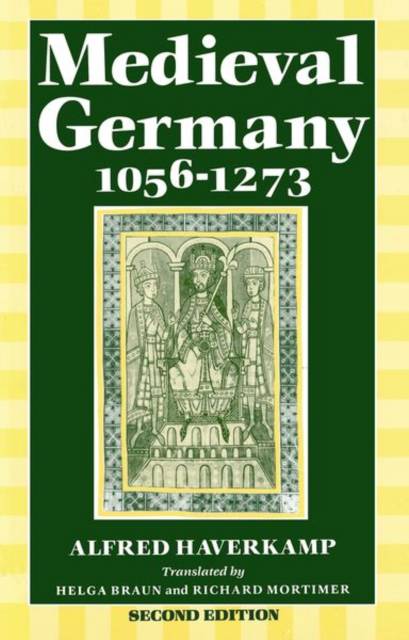
- Afhalen na 1 uur in een winkel met voorraad
- Gratis thuislevering in België vanaf € 30
- Ruim aanbod met 7 miljoen producten
- Afhalen na 1 uur in een winkel met voorraad
- Gratis thuislevering in België vanaf € 30
- Ruim aanbod met 7 miljoen producten
Zoeken
Omschrijving
This valuable and up-to-date guide to the complex and generally unfamiliar history of medieval Germany provides a comprehensive and vivid portrayal of this important time period in German and European history. Haverkamp begins with the accession of Henry IV to the German throne in 1056, takes in the reign of the energetic and successful Frederick Barbarossa (1152-1190) and ends with the election of Rudolf Habsburg who reimposed order following the fall of the Hohenstaufens. The German empire stretched from Rome to Pomerania, and from Hainaut to Silesia; its history is of major significance for the politics of Europe, for the expansion of Latin Christendom, and for the fortunes of the Papacy. Every aspect of its internal life is covered: economic growth and population increase, education, trade and industry, the church and religious life. Political development and accompanying social changes are examined and placed in their European context.
Specificaties
Betrokkenen
- Auteur(s):
- Vertaler(s):
- Uitgeverij:
Inhoud
- Aantal bladzijden:
- 440
- Taal:
- Engels
Eigenschappen
- Productcode (EAN):
- 9780198221722
- Verschijningsdatum:
- 15/10/1992
- Uitvoering:
- Paperback
- Formaat:
- Trade paperback (VS)
- Afmetingen:
- 140 mm x 216 mm
- Gewicht:
- 599 g

Alleen bij Standaard Boekhandel
+ 145 punten op je klantenkaart van Standaard Boekhandel
Beoordelingen
We publiceren alleen reviews die voldoen aan de voorwaarden voor reviews. Bekijk onze voorwaarden voor reviews.











